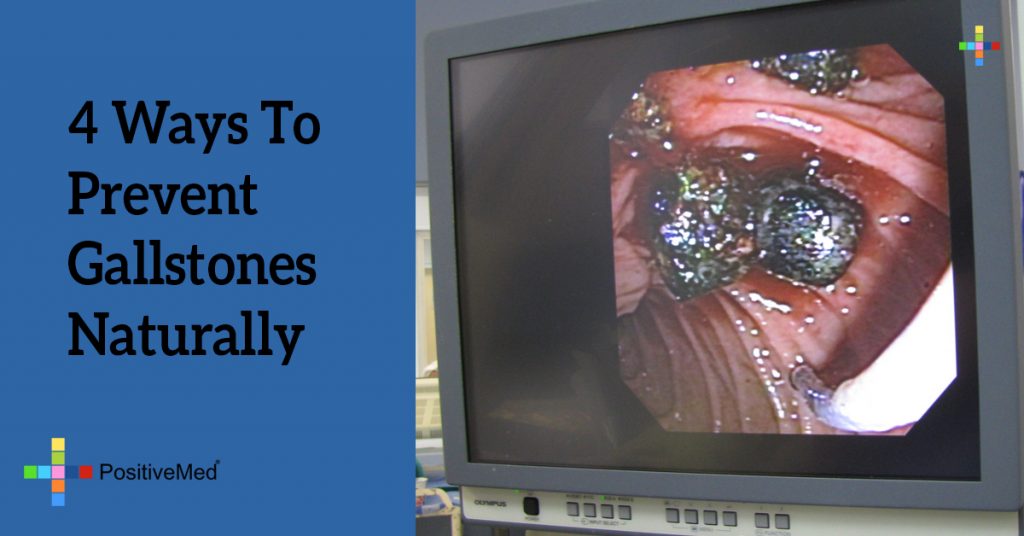
4 Ways To Prevent Gallstones Naturally
One in ten adults in the U.S. experience gallstone problems at least once during their lifetime according to data from the National Institutes of Health. About a million new cases are diagnosed annually with women in their 60s accounting for 25 percent of those affected by gallbladder issues. Many people with gallstones may be asymptomatic, but others will experience acute pain and major discomfort. Even after gallstones are removed through cholecystectomy, the problem may recur. Preventing gallstone formation is possible by understanding some of the risk factors.

Weight Control
Gallstones are pebble-like formations in the bile that are formed from bilirubin and cholesterol. Bilirubin and cholesterol are stored in the bile until needed to aid in the digestion of fat. These materials can harden over time especially with an excessive amount in the body. Obesity is one of the top causes of gallstone formation because being overweight increases the level of cholesterol in the blood.
However, rapid weight loss can trigger gallstone formation, so it is advisable to adopt a controlled weight-loss plan that recommends losing no more than one to three pounds a week. Weight cycling refers to the process of losing weight and gaining it all back. Avoid drastic weight cycling, and pay attention to your diet.
RELATED ARTICLE: 7 Juices You Can Prepare to Naturally Remove Gallstones
Getting enough exercise is crucial to maintaining your weight. The new food pyramid prepared by the U.S. Food and Drug Administration recommends that adults should incorporate at least half an hour of physical activity in their daily schedules.
Healthy Eating
Eating too much of food that are high in cholesterol can lead to gallstone problems. Limit your intake of fried food including fries, chicken and pork chops. Pick healthier choices than steak, pasta with creamy sauces and whole milk. Hold off on the pate because the highest concentration of cholesterol is in organ meats such as the liver. While eggs are highly recommended as healthy breakfast fare, limit your egg recipes or forego the yolk because this part is high in cholesterol.
On the other hand, food that are rich in monounsaturated fat may help prevent gallstones from forming. This list includes olive oil, flaxseed, fatty fishes, and avocados. Likewise, a diet that includes high-fiber foods such as fruit and vegetables can help to head off gallstones. Fiber cuts down acid absorption so that food can be processed efficiently inside the body. Drink six to eight glasses of water daily to keep your body in top condition.
READ ALSO: Gallstones, Simple Overview
Prescription Medication
Medication that affect cholesterol levels in the body should be avoided as much as possible by those who are prone to gallstone formation. Estrogen treatments may trigger hypersecretion of cholesterol in the bile while progesterone inhibits the conversion of cholesterol to its ester form. Octreotide, which is prescribed for the treatment of hormone-related dysfunction raises the risk for developing gallstones. Taking diuretics that are classified as thiazides may increase your risks for gallstones. Drugs that are prescribed for lowering cholesterol levels such as gemfibrozil and fenofibrate may add to your chances of gallstone issues. Make sure to ask your doctor for alternatives to your prescription medications if you are concerned about gallstone issues.
Vitamins and Minerals
Back up your healthy eating habits with supplementation, including 500-700 milligrams of calcium to reduce the chances of developing stones. Take 300 milligrams of curcumin to improve bile solubility and at least 200 milligrams of vitamin C to prevent the formation of gallstones.
ConclusionGallstone issues are common, and may cause pain and other symptoms. Prevent stone formation by making healthy choices such as sensible weight management and a healthy diet. Review your medications, and ask your doctor for alternatives that do not contribute to gallstone formation.
No matter your risk factors for gallstone formation, it pays to head off the problem by making healthier choices. Sticking to a healthy diet and striving to maintain a healthy weight are easier options than facing laparoscopic removal of a stone.







